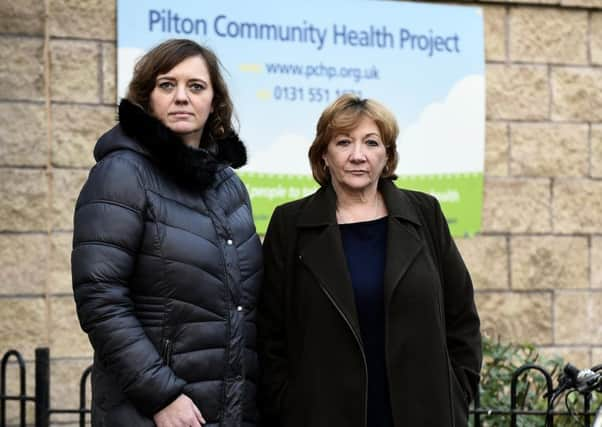Kezia Dugdale: Edinburgh's vulnerable suffer amid SNP cuts


It can be frustrating when your journey to work is disrupted, or you can’t get a seat on the train.
But a bit of disruption to the morning commute is nothing compared to the hardship that winter can bring for many low-income families and elderly residents.
Advertisement
Hide AdAdvertisement
Hide AdToo many people are faced with the devastating choice of eating or heating during this festive period.
Around 22 per cent of children in Edinburgh live in relative poverty, which is defined as household income being below 60 per cent of the average income. The figure rises to 35 per cent in our city’s most deprived communities.
Tackling poverty requires a co-ordinated approach between governments and public authorities.
Nobody should be left cold and hungry at any time of the year, but it is especially harrowing at Christmas.
Advertisement
Hide AdAdvertisement
Hide AdIt’s upsetting that foodbanks have become a way of life for so many people in our city and across the UK.
While putting food on the table can be difficult for many, the cost of heating a home is a real worry for thousands of families.
In 2010, a household with typical energy consumption paid £1,038 for an annual dual fuel bill but that soared to £1,116 last year.
Fortunately, there is an energy price cap in place this winter, protecting millions of families from unfair price rises. But more needs to be done. A government-backed street-by-street home insulation scheme would dramatically improve energy efficiency and save families hundreds of pounds each year.
Advertisement
Hide AdAdvertisement
Hide AdAction is needed because there is a human cost to the cold weather.
The number of elderly patients in hospital increases significantly around this time of year, and sadly there are always a number of winter deaths. The pressure on NHS Lothian has been intense throughout 2018, and I’m deeply worried about the next few months.
Despite the incredible work of NHS staff, the hospitals in our region have consistently underperformed when compared to the rest of Scotland, with long waiting times and a rise in ‘delayed discharge’ – more commonly known as bed blocking.
NHS Lothian needs tens of millions of pounds of extra investment, or it will be very hard to deliver improvements.
Advertisement
Hide AdAdvertisement
Hide AdBut reducing pressure on hospitals isn’t just about the cash that is delivered directly to the NHS – it’s about the money that goes to community projects as well.
There are many organisations which do preventative work that keeps people out of hospital, and living well in their own communities.
One such example is the Pilton Community Health Project (PCHP), which is facing closure.
As many as 35 organisations are set to lose the grants they have been receiving from the Edinburgh Integration Joint Board, which is in charge of health and social care for the city.
Advertisement
Hide AdAdvertisement
Hide AdPCHP is the oldest project of its kind in the Capital, but has said it will have to close if its £220,000 a year core funding from the joint board is pulled. It would be nothing short of a scandal if this service is taken away from residents in one of the city’s most deprived communities.
I know there is cross-party concern about the threat to PCHP, including from the local constituency SNP MSP, Ben Macpherson.
But Ben now sits in the ministerial tower in Holyrood, and there’s something he could do to help organisations like this. Knock on Nicola Sturgeon’s door and ask her to stop the cuts and properly fund our public services, so that people in our city don’t face more hardship this winter.